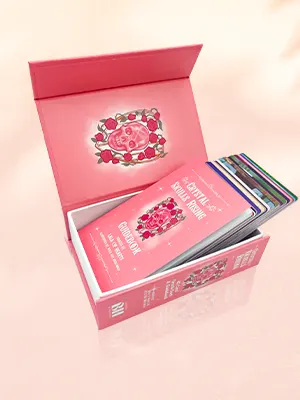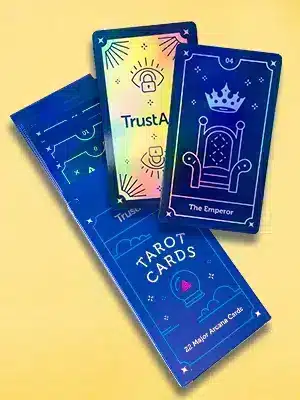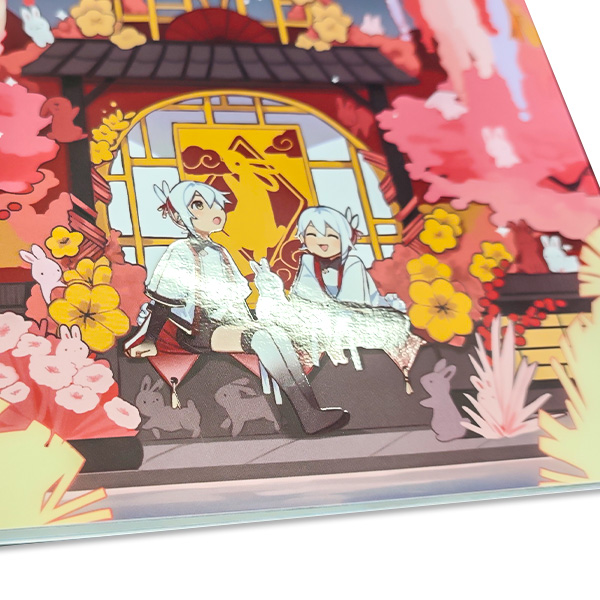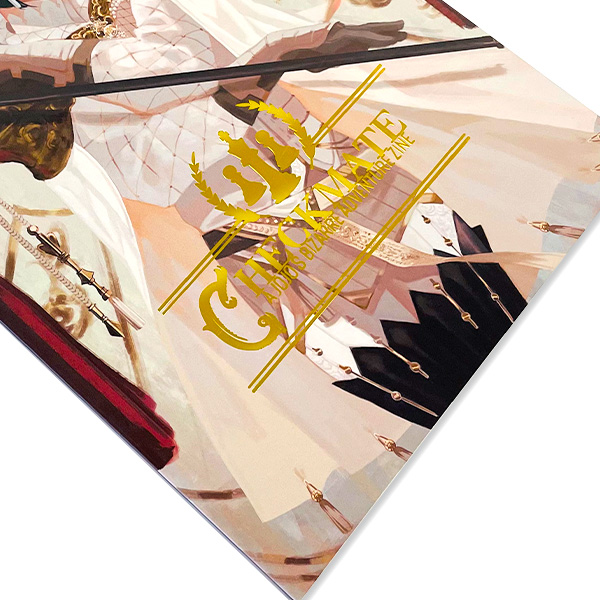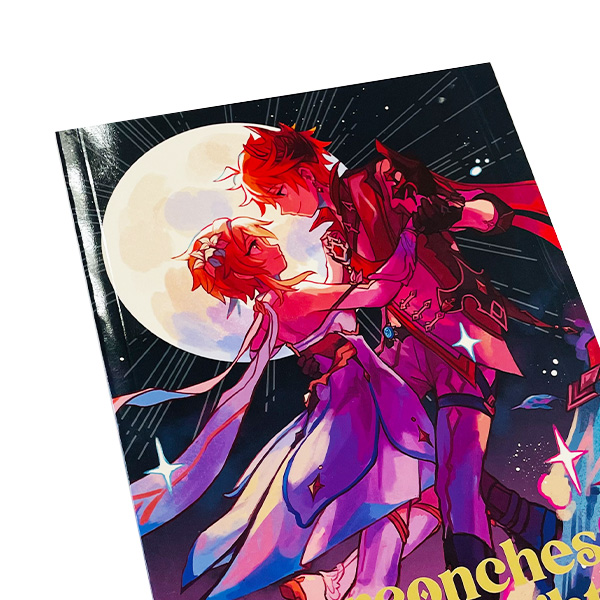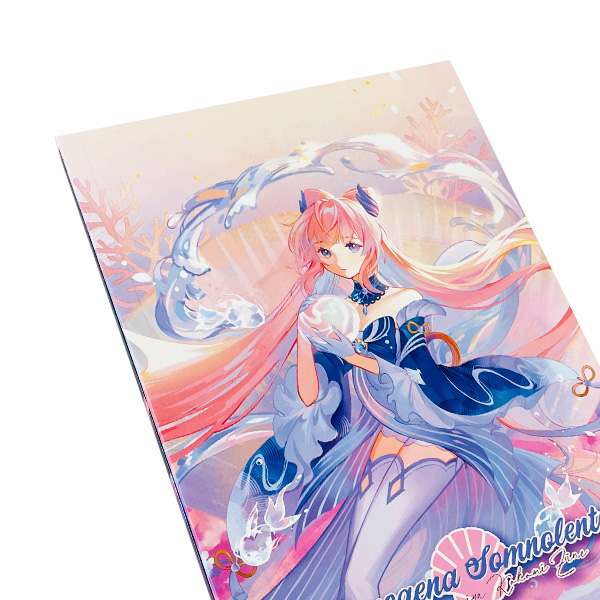Matte Lamination
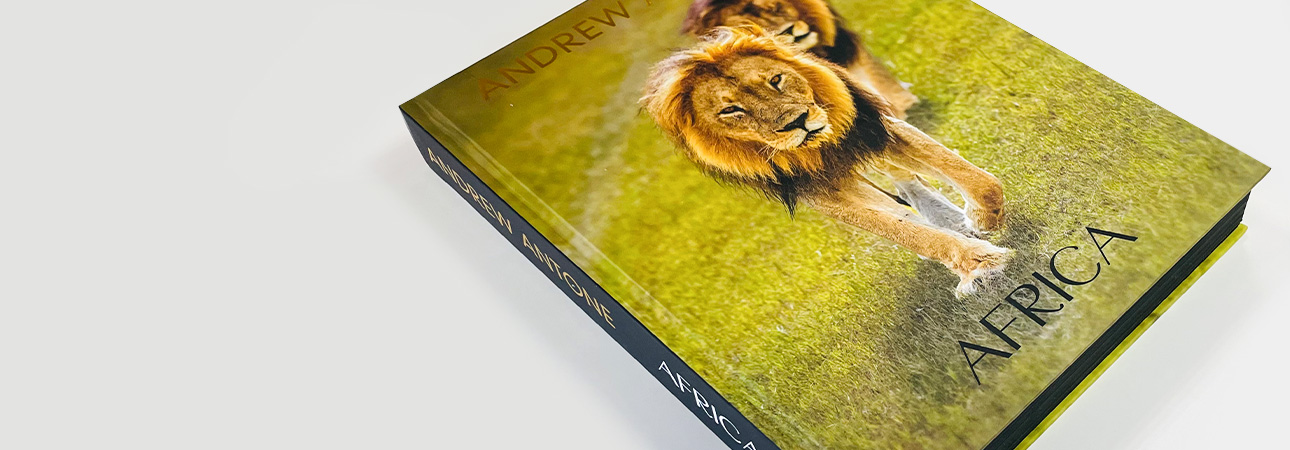
What Is Matte Lamination?
Matte lamination is applying a layer of see-through matte surface plastic film to a paper sheet and fixing it under heat and pressure. We can apply laminates on both sides of a sheet or just one. Manufacturers make laminates in a variety of thicknesses, from fairly stiff right through to extremely thin. Polyethylene Terephthalate (PET) is the most common material for the heavier laminates. They often make the lighter ones from Ethylene-Vinyl Acetate (EVA). PET can is easily recyclable and, in fact, it’s frequently manufactured from pre-existing recycled plastic products. It’s considered as being among the most environmentally friendly plastics. EVA is only recycled in a few districts. However, new biodegradable forms of EVA have recently been developed and are just being released into the market.
Matte laminates give a silky sheen to the printed surface of a paper sheet. While not as protective as alternatives such as gloss laminates, matte surfaces still provide a significant guard against wear-and-tear compared to a non-laminated surface. Aside from the practical value of matte lamination, it’s often perceived as giving colour print a more subtle effect and enhancing the cover surface with an upmarket look and feel that can be a boon to several print products.
The Advantages of Matte Lamination
Matte lamination is neither the best nor the worst option compared to other laminates, such as gloss or soft-touch. You’ll need to choose based on your specific product, market, and budget. Still, let’s describe the chief advantages of matte lamination.
- The “silky” surface that matte lamination achieves enhances your printed materials and gives the page a soft, classy sheen.
- All lamination protects the surface of your print project, guarding it against water, scuffing, fingerprints, dirt, soiling, and other damage.
- Matte lamination is ideal for using with special finishes such as foil stamping, and spot UV coating, which stand out more on a matte background.
- If you’re printing a book with a high page count or on thicker paper stock, matte lamination strengthens the spine and helps to stop it from splitting.
- It’s resistant to light spillages and you can wipe it clean with a dry cloth.
- Matte lamination extends the useful life of printed materials compared with unlaminated products.
- Mattes lamination lends your print a smart, high-class look.
These are just a few of the advantages of matte lamination, which make it a good choice for a wide spectrum of print projects from softcover books and catalogues to board games, cards, custom paper boxes, and many more. But it isn’t the only option. So, let’s compare it with the other most popular lamination choice: gloss lamination.
Matte Lamination vs Gloss Lamination
Matte and gloss lamination both protect printed surfaces from the wear-and-tear of repeated use, although matte lamination is less resistant to dampness, scratches, and scuffs than its glossy counterpart. But the visual and tactile qualities of matte lamination more than makeup for the milder protection it offers if it’s a high-end luxury look that you’re after. Whereas gloss is shiny and bright with a super-reflective surface, matte lamination softens colours and graphics and has a silky, gentler sheen as appealing to the touch as it is to the eye. For that reason, matte lamination is ideal for spot UV coating, which is itself glossy and so doesn’t stand out on another gloss surface.
These aesthetic qualities of matte lamination make it an ideal option for high-end print materials that need a more classy and sophisticated look and feel compared to the rather glaring results you get with gloss. Matte is an ideal lamination solution for projects where you want the colours to be more subtle—such as illustrated books for slightly older children, high-end product catalogues, gift and cosmetics packaging, magazine interiors, many board games, and so on—and also endure a longer lifespan despite repeated use. Choosing between matte and gloss lamination is an important decision, but there’s no one-size-fits-all answer to which is best for your product. A range of factors—including your print product, your intended market, current trends, your budget, and more—must all bear your choice. But here are some of the most popular applications of matte lamination in printing, to spark your own ideas. One important factor to bear in mind, however, is that we can only do matte lamination on paper that’s thicker than 105 gsm. With thinner paper, it doesn’t work.
Popular Applications for Matte Lamination
Now you understand the properties and effects of matte lamination, it may be useful to you if we list the most common print projects in which our customers find matte lamination useful. Again, this doesn’t mean that you can’t make a different decision, but it should help you with a practical context to make your choice.
- Art and coffee-table books—because art books and coffee-table books are often beautifully illustrated or rely on large format photography filling most pages but also combine text with images, matte lamination is a superb choice as it will make the images more subtle and attractive while enhancing the textual element.
- High-end product catalogues—while gloss lamination is a good choice for catalogues which need to have crisp, bright, colourful visuals, most times high-end product catalogues which focus on luxury goods, style, and fashion items, benefit from matte lamination to enhance product photographs and resist repeated browsing.
- Custom printed boxes—another popular application of matte lamination is on the outer surface of custom printed boxes. Matte makes the box appealing and sophisticated while helping to protect your products during storage, handling and display.
- Board games—board games often involve colourful artwork and they also need to look good even after years of play. While gloss can be an excellent choice for children’s and family board games, a game which must appeal to an older audience might do better with a classy, matte lamination on the board and other components such as tokens.
- Cards—flash cards and tarot cards are often matte laminated, too.
- Other products—many other products such as art prints, posters, presentation folders, and more, may also benefit from matte lamination.
We hope the above examples will help you understand the qualities and characteristics of matte lamination and give you a notion of what to consider when deciding if it’s the right option for your specific print project.
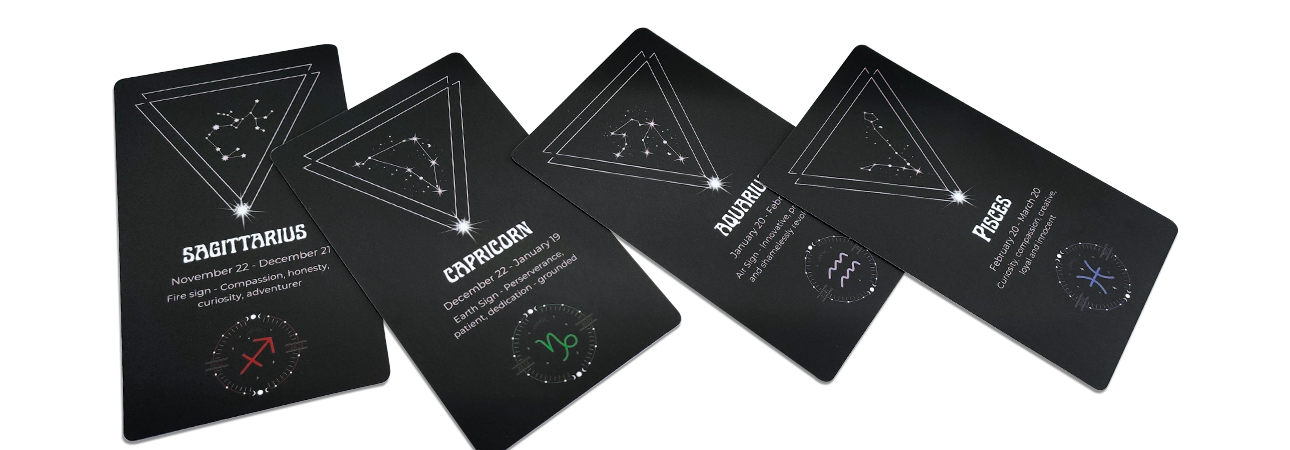
Need More Help? Talk to Us!
Choosing between the various lamination options is an important decision which has a significant impact on the appearance and quality of your finished printed product, the design process, and the price. If you’re not sure which option is the most suitable for your needs, the best thing to do is to talk to us. With over 25 years’ experience under our belts, the latest offset printing technology at our fingertips, a vast knowledge about paper, coatings, finishes, and laminates of all kinds, and a genuine commitment to customer service, we’ll be happy to give you the best advice to help you choose the perfect cover surface for both your print project and your budget. Get in touch today for an informal chat or a no-obligation quote. We can’t wait to work with you!

